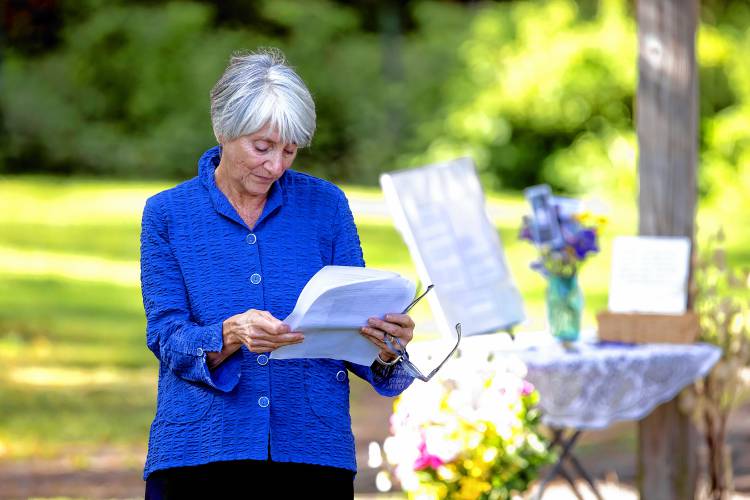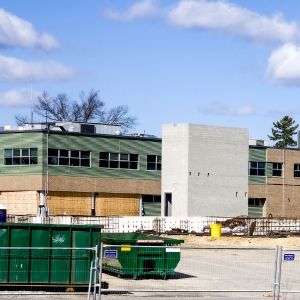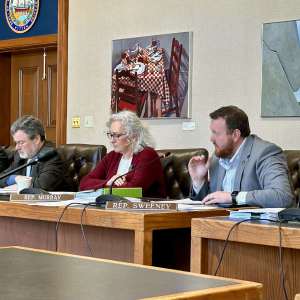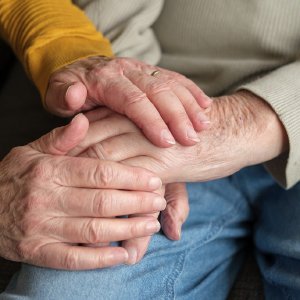Opinion: Medical aid in dying: Humane, ethical and needed now

Janet Prescott, best friend to Barbara Filion, a Portsmouth resident who decided to seek medical aid in dying in Vermont at the age of 82, speaks at her memorial at the Newcastle Commons on Sunday, June 8, 2024. GEOFF FORESTER
| Published: 03-13-2025 1:33 PM |
Gary Sobelson is a family physician living in Concord.
It’s a privilege to be a family physician. With over 40 years of practice, my patients continue to teach me about relationships, living with illness, old age and especially about approaching death.
One of those teachers was Esther, herself a nurse and the widow of a physician. At 92, she was blind, could no longer walk and had metastatic breast cancer. Enrolled in hospice, she managed — very unhappily — to tolerate her day-to-day existence. Regular doses of morphine weren’t enough to control her constant pain and, even more disturbing to her, dulled her previously sharp cognition.
One day when she heard me enter and say hello, she fixed her sightless eyes on me and asked, “Why are you keeping me alive? I want this to be over. Can’t we end this?” We both knew the answer. Despite the near-term inevitability of her death and her anguish, neither of us could legally make that choice in New Hampshire.
As I care for increasingly older and sicker people, encounters like this are far from unique. Terminally ill patients often tell me that their greatest fear isn’t their life ending. Rather, it’s their legitimate fear of the pain, suffering and loss of autonomy and dignity likely to accompany that end. All of us seek peace at the end of our lives. But such an end is not always the case, despite the best efforts of palliative care and hospice programs.
I’ve spent many hours providing such palliation and hospice care. Sometimes I find myself simply sitting with families at bedside as they hold vigil watching their loved one suffer with pain, agitation and labored gasps for air. We try, often with success, to alleviate such symptoms with morphine and other drugs intended to enhance comfort.
But these drugs are not universally effective, and they have their own side effects that some patients find intolerable. Some have terrible gastrointestinal symptoms; others hate the sense of brain dysfunction that ensues. And when one is sitting at the bedside and our best efforts to lessen pain and distress aren’t working, the glances of family members and friends convey a clear message: Death is inevitable. Why can’t we end this suffering?
Article continues after...
Yesterday's Most Read Articles
 House committee defunds relief program for mothers and children, spares SNAP incentives
House committee defunds relief program for mothers and children, spares SNAP incentives
 No high-speed E-ZPass at Hooksett tolls for at least two months
No high-speed E-ZPass at Hooksett tolls for at least two months
 New Hampshire law enforcement to step up traffic enforcement on Route 106
New Hampshire law enforcement to step up traffic enforcement on Route 106
 Schools in Lakes Region explore creating a special education school to bring down costs
Schools in Lakes Region explore creating a special education school to bring down costs
 Work continues on new state psychiatric hospital in Concord
Work continues on new state psychiatric hospital in Concord
 House committee reverses vote, adopts prohibition on DEI activities and spending
House committee reverses vote, adopts prohibition on DEI activities and spending
We need the New Hampshire legislature to give us, in the setting of terminal illness with proper safeguards, a right that has been available for as many as 26 years in 10 other states: the right to end our lives with dignity and on our own terms. House Bill 254 emphasizes personal liberty, as well as compassionate end-of-life care, by establishing this right to medical aid in dying, or MAiD.
Modeled on successful practice in places as nearby as Maine and Vermont, HB254 will not require anyone to choose such a path. But in the proper and very limited situations where it will apply, it will be a meaningful way to maintain autonomy to the end for persons with full mental capacity and the physical capability to self-administer safe and effective medications to end their suffering.
Like my patient Esther, many such persons wish to keep their minds and abilities to communicate with others, especially loved ones, intact and not trade prolonged pain relief for loss of cognition. MAiD makes this possible, and it allows one to choose the time and place for the end, usually at home in the company of loved ones.
We know from data gathered by the UNH Survey Center that the citizens of our state want this legislation to pass. We also know that such support is across the board, non-partisan, similar among persons of all faiths and fits into a growing sense of personal rights and freedom of choice.
Many of the contrary arguments suggest that the unintended consequences of this bill will harm our society. These arguments seem to ignore the experiences of our fellow Americans in states where MAiD is legal, and where no such adverse outcomes have been seen. Hospice enrollment has increased in those states and not one example of coercion or misapplication has been verified.
Compared to many other forms of medical practice, the protections afforded in HB254 are strict: Two qualified clinicians must certify the terminal condition and prognosis; the patient’s capacity, both physical and mental, must be demonstrated; and the involvement of witnesses is mandated.
The evidence from clinical practice is clear: Having MAiD as an option leads to a markedly better sense of control and comfort, for both patients and their loved ones.
We will all face death. Medical aid in dying allows us, based on our own faith, values and conscience, to make the decision we deem right for ourselves. I hope our lawmakers give me, my fellow physicians and our patients this tool to prevent unnecessary pain and alleviate suffering. MAiD is humane, ethical and is needed now.







 Opinion: Courage and care count
Opinion: Courage and care count
